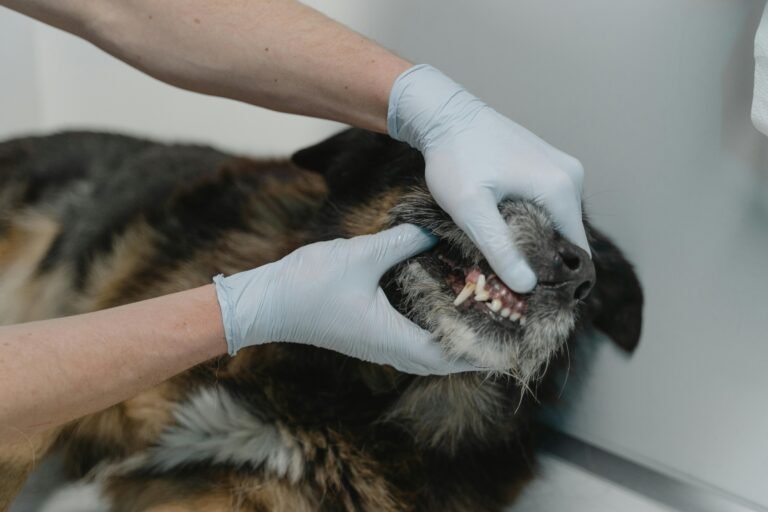Introduction to Natural Remedies for Dogs
In recent years, the use of natural remedies for addressing common dog issues has gained popularity among pet owners. This trend reflects a growing awareness of the benefits associated with utilizing holistic approaches to enhance the health and well-being of dogs. Natural remedies may offer a range of advantages, including safety, accessibility, and the potential for improved overall health.
One of the primary benefits of employing natural remedies is their safety profile. Many conventional treatments for common dog ailments can cause unwanted side effects or adverse reactions. In contrast, natural treatments—derived from plants, minerals, and other organic sources—often have a gentler impact on a dog’s system, making them less likely to result in negative outcomes. This characteristic is especially appealing to pet owners who prefer to avoid pharmaceuticals unless absolutely necessary.
Accessibility is another key factor influencing the preference for natural remedies. Many of these treatments can be easily sourced from health food stores, herbal shops, or even within one’s kitchen, catering to owners seeking quick, cost-effective solutions. Additionally, numerous natural remedies can be prepared at home, allowing for greater control over the ingredients and ensuring that only beneficial components are utilized.
Using natural remedies can also lead to improved overall health for dogs. Many holistic treatments encourage not only symptom alleviation but also promote healthier lifestyle choices that can have a long-lasting impact. Incorporating natural approaches, such as dietary changes or herbal supplements, can enhance immune function, support digestion, and foster a sense of balance in a dog’s health.
This blog post will delve into specific natural remedies for common issues faced by dogs, providing a comprehensive guide for pet owners interested in exploring these alternatives. By understanding the various natural treatments available, owners can make informed decisions regarding their dog’s health and well-being.
Understanding Itchy Skin in Dogs
Itchy skin is a common issue that can significantly impact a dog’s quality of life. Various factors can contribute to this discomfort, including allergies, parasites such as fleas and ticks, and underlying skin conditions. Identifying the root cause of the itching is essential in addressing the problem effectively.
Allergies are one of the primary culprits behind itchy skin in dogs. These can stem from environmental allergens like pollen, mold, and dust mites, or from certain foods that your dog may be sensitive to. When a dog encounters an allergen, their immune system reacts, leading to inflammation and itching. This condition, known as allergic dermatitis, can manifest in various ways, including red patches, flakiness, and hair loss.
Parasites also play a significant role in causing skin irritation. Fleas, for instance, not only bite and feed on your dog’s blood but also inject saliva that can cause severe allergic reactions, leading to intense itching. Ticks can similarly lead to irritation and discomfort. Regularly checking for and treating your dog for these pests is vital for preventing itchy skin issues.
Skin conditions, such as eczema or yeast infections, are other potential causes of itching. These conditions often require veterinary diagnosis and treatment; however, natural remedies can provide temporary relief. For instance, an oatmeal bath offers soothing properties that can alleviate irritation and hydrate the skin. Coconut oil is another effective natural remedy, as it contains anti-inflammatory properties and can provide significant moisture to dry, itchy skin. Moreover, herbal sprays infused with ingredients like chamomile or calendula can be applied to affected areas to promote healing and reduce scratching.
By recognizing the signs of itchy skin and understanding its underlying causes, pet owners can take informed steps toward finding relief through both veterinary guidance and natural remedies.
Natural Remedies for Upset Stomach in Dogs
Upset stomachs in dogs can arise due to various factors, but dietary indiscretion and food allergies are among the most common causes. Dogs may experience digestive disturbances after consuming spoiled food, human food, or items they find on a walk. Additionally, certain food allergies can trigger gastrointestinal symptoms, compromising their overall gut health. Recognizing these triggers is essential for dog owners to effectively address and manage their pets’ digestive issues.
Fortunately, there are several natural remedies available that can help soothe an upset stomach and restore digestive balance. One of the most popular remedies is pumpkin puree, which is rich in dietary fiber. This soluble fiber aids in normalizing bowel movements, making it effective for both diarrhea and constipation. When feeding your dog pumpkin, ensure it is plain, canned pumpkin without added sugars or spices for the best results.
Ginger is another natural option that may alleviate stomach discomfort in dogs. Known for its anti-nausea properties, ginger can calm the digestive system. A small amount of ginger, either fresh or in powdered form, mixed in your dog’s food may provide relief from queasiness. However, it’s vital to use ginger cautiously and in moderation, as excessive amounts could lead to further digestive issues.
Probiotics also play a crucial role in improving gut health. These beneficial bacteria help restore the natural balance of the intestinal flora, which can be disrupted during times of digestive distress. Adding a high-quality, dog-specific probiotic supplement to your dog’s diet can bolster their gut health, enhance nutrient absorption, and support overall digestive function.
Incorporating these natural remedies can help your dog recover from digestive distress. However, it’s important to consult a veterinarian if symptoms persist, to rule out any underlying health conditions.
Addressing Anxiety in Dogs with Natural Solutions
Anxiety is a common issue that many dogs experience, manifesting through various behaviors such as excessive barking, destructive actions, or signs of distress during specific situations. Understanding the triggers of anxiety is crucial for dog owners; these triggers can range from loud noises, such as thunderstorms or fireworks, to social situations or even separation anxiety when the dog is left alone. Identifying the particular stimulus causing discomfort is the first step in mitigating these issues.
Natural remedies can play a significant role in alleviating anxiety in dogs. One of the most effective solutions includes herbal supplements that are known for their calming properties. For instance, valerian root is an herb often utilized to promote relaxation and reduce nervousness in dogs. Similarly, chamomile is another herb recognized for its soothing effects, which can help ease anxiety, especially during stressful situations like vet visits or travel. These herbal supplements can be administered in different forms, such as tinctures, capsules, or teas, depending on the dog’s preference and tolerance.
In addition to herbal remedies, environmental modifications can enhance a dog’s sense of security and help manage anxiety levels. Creating a safe space for your dog can make a significant difference; this may entail setting up a cozy area with familiar items, such as their favorite blanket or toys, where they can retreat during times of stress. Incorporating soothing music or white noise can also reduce the impact of sudden loud sounds from external sources. Furthermore, establishing consistent routines can instill a sense of stability in your dog’s life, thereby alleviating anxiety associated with uncertainty.
By combining natural remedies with thoughtful environmental changes, dog owners can effectively manage their pets’ anxiety, fostering a more peaceful and secure atmosphere for their beloved companions.
Combatting Bad Breath in Dogs Naturally
Bad breath in dogs, often referred to as halitosis, is a common concern among dog owners. The primary causes of this unpleasant odor can range from poor oral hygiene and dental disease to dietary factors. When food particles remain trapped in a dog’s teeth and gums, they can lead to plaque buildup and subsequently, bacteria that produce foul-smelling gases. Additionally, certain dietary choices, such as high-protein or processed foods, can exacerbate this issue and contribute to persistent bad breath.
Fortunately, several natural remedies can help combat bad breath in dogs effectively. One popular option is dental chews specifically designed for dogs, which can assist in reducing plaque and tartar buildup. These chews are often formulated to be palatable while providing the oral care benefits needed to keep breath fresh. Regularly incorporating these chews into a dog’s routine can improve both their dental hygiene and overall freshness.
Another effective natural remedy is parsley, which contains natural deodorizing properties. Adding small amounts of finely chopped parsley to your dog’s meals may help neutralize odors and enhance their breath. Furthermore, owners can prepare homemade dog toothpaste using simple, safe ingredients like baking soda and vegetable broth. This homemade mix is not only gentle on a dog’s gums but can also eliminate bacteria in the mouth, promoting better oral health.
It’s crucial to remember that while these natural remedies can significantly improve the situation, they should be part of a comprehensive oral care routine. Regular veterinary check-ups and professional dental cleanings remain essential for addressing underlying dental issues. By combining these natural strategies with proper care, dog owners can effectively maintain their pet’s oral health and combat bad breath.
Recognizing and Treating Ear Infections at Home
Ear infections are a prevalent issue observed in dogs, often caused by factors such as allergies, excessive moisture, or foreign bodies in the ear canal. Recognizing the symptoms early can lead to timely intervention and effective home treatment methods. Common indicators of ear infections in dogs include persistent scratching at the ears, a foul odor emanating from the ear, swelling or redness in the ear canal, and discharge ranging from clear to dark brown. Dogs may also exhibit signs of discomfort, such as shaking their heads or tilting them to one side.
Excess moisture is one of the leading contributors to ear infections, as it creates an ideal environment for bacteria and yeast to thrive. This moisture accumulation can be particularly problematic for breeds with floppy ears or those that swim frequently. Allergies also play a significant role, as they can lead to inflammation and sensitivity in the ear canal. Understanding these causative factors can help dog owners take preventive measures against ear infections.
For mild cases, several natural remedies may provide relief and assist in treating the condition. A common home remedy involves using a diluted apple cider vinegar solution. This can be made by mixing equal parts of apple cider vinegar and water, which can help restore the natural pH of the ear canal while acting as a natural antibacterial agent. Additionally, herbal ear drops containing ingredients such as calendula or tea tree oil, known for their anti-inflammatory and antimicrobial properties, can be used to soothe the irritation and promote healing.
While home remedies can be effective, it is crucial to monitor the dog’s condition closely. If symptoms persist or worsen despite treatment, it is important to consult a veterinarian. They can provide a definitive diagnosis and prescribe appropriate medications or further interventions as needed, thereby ensuring your dog’s overall well-being is not compromised.
Integrating Natural Remedies into Your Dog’s Routine
Incorporating natural remedies into your dog’s daily routine can enhance their overall well-being and address common health issues. However, it is essential to do so thoughtfully and with guidance. Consulting with a veterinarian before introducing any new treatments is paramount. Veterinary professionals can provide valuable insights about the specific needs of your dog, ensuring that the remedies you choose are safe and appropriate for their health condition and lifestyle.
Once you have the green light from your veterinarian, start by introducing one remedy at a time. This approach allows you to monitor your dog’s response and efficacy closely. For instance, if you decide to incorporate a natural supplement such as omega-3 fatty acids for coat health, begin by adding it to their diet in a small amount. Gradually increase the dosage to the recommended level as advised by your vet, while observing your dog for any signs of improvement or adverse reactions.
Another practical tip is to create a routine that seamlessly integrates these natural remedies. This can be achieved by incorporating them into your dog’s meal times or during their regular grooming sessions. For example, if you are using a natural flea deterrent spray, apply it during grooming when your dog is calm and comfortable. Moreover, keep track of any notable changes in your dog’s behavior, energy levels, or physical appearance. This will aid you and your veterinarian in determining whether the remedies are positively affecting your dog’s health.
It is also beneficial to educate yourself about the various natural options available, ranging from herbal treatments to dietary adjustments. Engaging in research and joining discussions with fellow dog owners can provide additional perspectives on the effectiveness of different natural remedies. Always remember, while integrating these approaches, the health and comfort of your dog should remain the priority.
Safety Considerations When Using Natural Remedies
As pet owners increasingly turn to natural remedies for common dog issues, it is paramount to prioritize safety in the selection and administration of these alternatives. While many natural solutions can be beneficial, there are potential risks and side effects associated with their use that owners must be aware of. Firstly, it is essential to recognize that not all natural remedies are appropriate for every dog; individuals may have varying sensitivities or allergies to certain herbs and ingredients. Therefore, it is advisable to conduct thorough research before introducing any new remedy into your dog’s regimen.
Moreover, interactions with existing medications can pose significant risks. Many dogs are on prescribed medications for various health conditions, and combining these with herbal remedies may lead to adverse effects or diminished efficacy of treatments. Consulting a veterinarian who is knowledgeable about both conventional and alternative therapies can provide clarity on potential interactions and help ensure a safe approach to incorporating natural products into your dog’s care routine.
Furthermore, obtaining natural remedies from reputable sources is critical to ensure their quality and effectiveness. Products that are poorly manufactured or lack proper testing can contain harmful contaminants or inappropriate dosages. It is advisable to choose products that are certified and backed by scientific research, and to be wary of anecdotal claims and non-verified sources. Additionally, thorough observation of your dog after administering any new remedy is essential to monitor for unexpected reactions.
In conclusion, while natural remedies offer promising alternatives for addressing common dog issues, it is crucial to approach their use with caution. By being informed about potential risks, seeking professional advice, and prioritizing reputable products, pet owners can safely explore the benefits of holistic care for their dogs without compromising their health and safety.
Holistic Approach: More Than Just Remedies
Adopting a holistic approach to dog health is essential for ensuring that our canine companions lead happy, healthy lives. While natural remedies can play a crucial role in alleviating various common issues such as allergies, digestive problems, and skin conditions, they should not be viewed in isolation. Incorporating a comprehensive strategy that includes proper nutrition, regular exercise, and routine veterinary care is vital for fostering overall well-being in dogs.
At the core of a holistic approach lies the importance of a balanced diet. Canine nutrition directly influences a dog’s health, immunity, and energy levels. A diet rich in essential nutrients, such as omega fatty acids, vitamins, and minerals, can enhance a dog’s resilience to common ailments. Whole foods, like vegetables, lean meats, and grains, can provide the necessary building blocks for a robust immune system, effectively preventing many health issues before they arise.
Exercise also constitutes a key component of a holistic health regimen. Regular physical activity not only helps to maintain a healthy weight but also strengthens muscles and joints, reduces behavioral issues, and promotes mental well-being. By providing proper exercise tailored to a dog’s energy levels and physical limitations, owners can decrease the likelihood of obesity-related conditions and other chronic ailments.
Furthermore, maintaining a relationship with a veterinarian is indispensable for monitoring a dog’s health. Regular check-ups can catch potential issues early, and veterinarians can offer insight into both natural remedies and conventional treatments. By integrating natural solutions with professional advice, pet owners can cultivate an effective plan that addresses their dogs’ specific needs.
In summary, a holistic approach to dog health encompasses far more than simply administering natural remedies. By harmonizing diet, exercise, and veterinary care, dog owners can significantly enhance their pets’ overall lifestyle, ultimately preventing common health issues and ensuring a long, vibrant life.
Conclusion: Embracing Natural Solutions for Your Dog
Throughout this guide, we have explored various natural remedies that can effectively address common issues faced by dogs. By adopting these holistic approaches, pet owners can contribute positively to their dogs’ overall well-being, helping to mitigate concerns ranging from skin irritations to digestive problems. The benefits of natural remedies extend beyond mere symptom relief; they promote a healthier lifestyle, enabling dogs to thrive in a more balanced and natural environment.
Natural solutions often use ingredients derived from nature, ensuring that they are gentle and safe for dogs. For instance, herbal treatments can alleviate symptoms of anxiety or stress, while essential oils may provide relief from seasonal allergies. Moreover, nutritional supplements, when incorporated into a dog’s diet, can improve both immunological and digestive health. Emphasizing these remedies aligns with a growing trend towards holistic health care, which prioritizes the use of non-synthetic substances and encourages preventive measures to maintain a dog’s health.
Furthermore, the proactive incorporation of natural remedies can foster a deeper bond between dog owners and their pets. Engaging with your dog’s dietary and wellness choices allows owners to be more attentive to their pets’ needs. This attentiveness often translates into a happier, more resilient dog, thus enhancing the human-animal connection. Naturally sourced products tend to have fewer side effects compared to conventional medications, reducing stress for both pets and their owners in dealing with adverse reactions.
As guardians of our beloved pets, it is essential that we explore all available options for maintaining their health. By embracing natural remedies, we can significantly enhance our dogs’ quality of life and happiness. In the journey of caring for our dogs, these holistic solutions provide a path toward a happier, healthier future.






